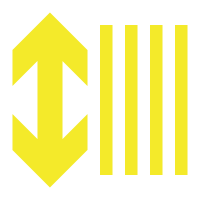译典友情编辑(建议登录会员后操作)

编辑说明:您可以直接修改编辑中英文词条(句子),也可以在备注栏输入补充解释和支持材料,甚至可以上传图片。您编辑的内容将以署名方式展示给其他用户。您的参与,是我们的荣耀。我们建议您先登录/注册本站会员,认领本词条的编辑权。译典的蓬勃发展离不开您的支持。

通译语典文库是一部经典文章集合。通过上下文来限定语句直至词语的语境, 获取最准确的语义,直达翻译佳境!
正文
目录
文库目录
文库收藏
中文百科
Wiki百科
属类:
双语小说
【分类】双语小说
-[作者: 陀思妥耶夫斯基]
阅读:[7392]


PART I:Book I. The History Of A Family:Chapter II. He Gets Rid Of His Eldest Son
《
字+字-
行+行-
页+页-

 字+字-
行+行-
页+页-
》
字+字-
行+行-
页+页-
》
-
这种人怎样当父亲和教育者,当然可想而知。在他这种父亲身上,该发生的事情终于发生了。他把自己跟阿杰莱达·伊凡诺芙娜生的孩子彻底抛弃了,倒不是因为恨孩子或者因为夫妻反目感到委屈,而仅仅是因为他把孩子忘得干干净净的缘故。当他哭哭啼啼到处诉苦因而惹得众人讨厌,而他又把自己的家变成一座淫窟的时候,他家的义仆格里戈里担当起了抚养这个三岁男孩的责任。要不是当初他关心,那么也许没有人会替孩子换一件衬衫。况且孩子母亲方面的亲戚一开始似乎就把他给忘了。他的外祖父,阿杰莱达·伊凡诺芙娜的父亲米乌索夫先生已经去世,他的遗孀,米佳的外祖母已经移居莫斯科并且得了重病,他们的几个女儿也陆续出嫁,因此几乎整整一年米佳只能待在仆人格里戈里家里,住在仆人住的小木屋里。不过话又说回来,即使这位好爸爸想起了自己的孩子(事实上他不可能不知道他的存在),那么他还会重新把他送回小木屋的,因为孩子肯定会妨碍他淫荡的生活。后来发生了新的情况,就是已故的阿杰莱达·伊凡诺芙娜的堂兄,彼得·亚历山德罗维奇·米乌索夫从巴黎回来了。此人后来在国外一连住了好多年,可是当初还很年轻,在米乌索夫家族中显得与众不同,非常开明,颇有京城气派和外国风度,是个一辈子崇尚欧洲文明的西欧派,晚年又成了四五十年代的自由派。在他一生的经历中,他跟那个时代国内外的许多最具自由思想的人物有过广泛的联系。跟蒲鲁东和巴枯宁有过直接交往,在他的漂泊生涯快结束的时候还特别喜欢回忆和讲述1848年巴黎2月革命三天里的情形,还暗示说他几乎亲身参加了巷战。这是他青年时代最愉快的回忆之一。他拥有独立的财产,照以前的算法,大约相当于一千个农奴。他那富饶的领地就位于我们这座小城的郊外,跟我们名闻遐迩的修道院的土地毗连。早在年轻时,彼得·亚历山德罗维奇刚得到这份财产时就为能在河里捕鱼或在树林里砍伐的权利而跟修道院打起没完没了的官司。这场官司的是非曲直我不清楚,但他甚至认为跟这些“教权主义者”打官司是一种公民的义务和文明人的职责。他可能还记得阿杰莱达·伊凡诺芙娜,以前曾经关注过她,因此听说了她的所有情况并得知还留下一个米佳之后,他义愤填膺,仅管对费奥多尔·巴夫洛维奇充满蔑视,但还是插手干预了这件事。这时候他才第一次同费奥多尔·巴夫洛维奇见面。他直截了当地向他宣布自己很想担当起抚养孩子的责任。后来他经常对别人说,他提到米佳的时候,对方一度装作一点也不明白是指哪一个孩子,甚至显得很惊讶,他家里居然还有个年幼的孩子。即使彼得·亚历山德罗维奇的话有点夸张,但毕竟道出了某些实情。费奥多尔·巴夫洛维奇一辈子都喜欢装腔作势,他会无缘无故地在您面前扮演某种料想不到的角色,虽然有时候完全没有这种必要,甚至对他自己不利。譬如这一次就是如此。不过,这种特征是许多人,甚至是相当聪明的人所固有的,更不用说费奥多尔·巴夫洛维奇了。彼得·亚历山德罗维奇热心地着手办这件事,甚至与费奥多尔·巴夫洛维奇一起被指定为孩子的监护人,因为孩子的母亲死后毕竟还留下了一份小小的财产,一幢房子和一处地产。米佳也真的住到了这位堂舅舅那儿,可这位堂舅没有成家,他本人刚处理完田产的事务并得到收益的保障后又立即匆匆赶往巴黎,准备在那儿长期居留,于是把这孩子委托给了自己的堂婶,一位莫斯科的太太。结果他在巴黎住得习惯了,尤其是那场令他大为震惊并且终身难忘的二月革命来临的时候,他早把孩子的事忘得一干二净。接着,莫斯科那位太太死了,于是米佳又住到她的一个已经出嫁的女儿家里。后来他似乎又第四次改换过门庭。这些事现在我不打算详谈。因为有关费奥多尔·巴夫洛维奇这位头生子的情况将要详细叙述,现在只谈些有关他的最必不可少的情况,否则我这部小说就无法开头。
1

读书笔记
是否公开
-
第一,在费奥多尔·巴夫洛维奇三个儿子中唯独德米特里·费奥多罗维奇从小就相信自己还多少拥有一点财产,成年后就可以独立自主了。他的少年和青年时代是在混乱中度过的:中学没读完就进了一所军事学校,接着又突然到高加索担任军职,深得上司器重,因参与决斗而被降职,后来又重新得到赏识,他成天过着花天酒地的生活,糟蹋了不少钱财。直到成年之后他才从费奥多尔·巴夫洛维奇那里得到一些钱,在此之前他到处借钱,债台高筑。他第一次跟自己的父亲费奥多尔·巴夫洛维奇相识和见面是在成年之后,那次他是特意到我们这儿来跟父亲清算自己的财产的。大概当初父亲就没有博得他的好感,他在父亲家里呆的时间不长,从父亲那儿得到了一笔不大的钱款并且就今后田产收益跟他商定了一个办法以后就匆匆忙忙离开了。至于这些田产有多少收益,本身价值多少,那一次他始终无法从费奥多尔·巴夫洛维奇口中得到确切的回答(这是个值得注意的事实)。费奥多尔·巴夫洛维奇一开始就指出(这一点也得记住),米佳对于自己的财产抱着夸大的不正确的想法。费奥多尔·巴夫洛维奇对这次见面十分满意,因为他另有打算。他断定这年轻人性格轻浮,脾气暴躁,欲望强烈,缺乏耐心,热衷于吃喝玩乐,只要抓到点什么,就立刻会平静下来,当然,平静的时间不长。费奥多尔·巴夫洛维奇马上开始利用这一点,即给他一些小恩小惠,不时寄点钱去敷衍他。最后发生了这样的事情:四年后米佳终于失去了耐心,再次来到我们这座小城,准备跟父亲彻底清算财产,可是他万万没有想到自己已经一无所有,甚至都难以结算了,他从父亲那儿取走了相等于自己全部财产价值的钱财,甚至还欠着他。根据他某年某月自愿具结的某项契约,他已完全失去了进一步提出任何要求的权利。年轻人感到十分惊讶,怀疑自己上当受骗了,气得几乎失去理智。正是这个情况导致了一场悲剧,而描述这场悲剧便成了我这第一部序幕性小说的内容,或者说得更确切些,成了这部小说的框架。但在着手叙述这件事情之前,还需要谈谈费奥多尔·巴夫洛维奇另外两个儿子,即米佳的两个弟弟,并且说明他们的来历。
2

读书笔记
是否公开
-
You can easily imagine what a father such a man could be and how he would bring up his children. His behavior as a father was exactly what might be expected. He completely abandoned the child of his marriage with Adelaïda Ivanovna, not from malice, nor because of his matrimonial grievances, but simply because he forgot him. While he was wearying every one with his tears and complaints, and turning his house into a sink of debauchery, a faithful servant of the family, Grigory, took the three‐year‐old Mitya into his care. If he hadn’t looked after him there would have been no one even to change the baby’s little shirt.
1

读书笔记
是否公开我的读书笔记
仅对会员开放网友的读书笔记
仅对会员开放
-
It happened moreover that the child’s relations on his mother’s side forgot him too at first. His grandfather was no longer living, his widow, Mitya’s grandmother, had moved to Moscow, and was seriously ill, while his daughters were married, so that Mitya remained for almost a whole year in old Grigory’s charge and lived with him in the servant’s cottage. But if his father had remembered him (he could not, indeed, have been altogether unaware of his existence) he would have sent him back to the cottage, as the child would only have been in the way of his debaucheries. But a cousin of Mitya’s mother, Pyotr Alexandrovitch Miüsov, happened to return from Paris. He lived for many years afterwards abroad, but was at that time quite a young man, and distinguished among the Miüsovs as a man of enlightened ideas and of European culture, who had been in the capitals and abroad. Towards the end of his life he became a Liberal of the type common in the forties and fifties. In the course of his career he had come into contact with many of the most Liberal men of his epoch, both in Russia and abroad. He had known Proudhon and Bakunin personally, and in his declining years was very fond of describing the three days of the Paris Revolution of February 1848, hinting that he himself had almost taken part in the fighting on the barricades. This was one of the most grateful recollections of his youth. He had an independent property of about a thousand souls, to reckon in the old style. His splendid estate lay on the outskirts of our little town and bordered on the lands of our famous monastery, with which Pyotr Alexandrovitch began an endless lawsuit, almost as soon as he came into the estate, concerning the rights of fishing in the river or wood‐cutting in the forest, I don’t know exactly which. He regarded it as his duty as a citizen and a man of culture to open an attack upon the “clericals.” Hearing all about Adelaïda Ivanovna, whom he, of course, remembered, and in whom he had at one time been interested, and learning of the existence of Mitya, he intervened, in spite of all his youthful indignation and contempt for Fyodor Pavlovitch. He made the latter’s acquaintance for the first time, and told him directly that he wished to undertake the child’s education. He used long afterwards to tell as a characteristic touch, that when he began to speak of Mitya, Fyodor Pavlovitch looked for some time as though he did not understand what child he was talking about, and even as though he was surprised to hear that he had a little son in the house. The story may have been exaggerated, yet it must have been something like the truth.
2

读书笔记
是否公开我的读书笔记
仅对会员开放网友的读书笔记
仅对会员开放
-
Fyodor Pavlovitch was all his life fond of acting, of suddenly playing an unexpected part, sometimes without any motive for doing so, and even to his own direct disadvantage, as, for instance, in the present case. This habit, however, is characteristic of a very great number of people, some of them very clever ones, not like Fyodor Pavlovitch. Pyotr Alexandrovitch carried the business through vigorously, and was appointed, with Fyodor Pavlovitch, joint guardian of the child, who had a small property, a house and land, left him by his mother. Mitya did, in fact, pass into this cousin’s keeping, but as the latter had no family of his own, and after securing the revenues of his estates was in haste to return at once to Paris, he left the boy in charge of one of his cousins, a lady living in Moscow. It came to pass that, settling permanently in Paris he, too, forgot the child, especially when the Revolution of February broke out, making an impression on his mind that he remembered all the rest of his life. The Moscow lady died, and Mitya passed into the care of one of her married daughters. I believe he changed his home a fourth time later on. I won’t enlarge upon that now, as I shall have much to tell later of Fyodor Pavlovitch’s firstborn, and must confine myself now to the most essential facts about him, without which I could not begin my story.
3

读书笔记
是否公开我的读书笔记
仅对会员开放网友的读书笔记
仅对会员开放
-
In the first place, this Mitya, or rather Dmitri Fyodorovitch, was the only one of Fyodor Pavlovitch’s three sons who grew up in the belief that he had property, and that he would be independent on coming of age. He spent an irregular boyhood and youth. He did not finish his studies at the gymnasium, he got into a military school, then went to the Caucasus, was promoted, fought a duel, and was degraded to the ranks, earned promotion again, led a wild life, and spent a good deal of money. He did not begin to receive any income from Fyodor Pavlovitch until he came of age, and until then got into debt. He saw and knew his father, Fyodor Pavlovitch, for the first time on coming of age, when he visited our neighborhood on purpose to settle with him about his property. He seems not to have liked his father. He did not stay long with him, and made haste to get away, having only succeeded in obtaining a sum of money, and entering into an agreement for future payments from the estate, of the revenues and value of which he was unable (a fact worthy of note), upon this occasion, to get a statement from his father. Fyodor Pavlovitch remarked for the first time then (this, too, should be noted) that Mitya had a vague and exaggerated idea of his property. Fyodor Pavlovitch was very well satisfied with this, as it fell in with his own designs. He gathered only that the young man was frivolous, unruly, of violent passions, impatient, and dissipated, and that if he could only obtain ready money he would be satisfied, although only, of course, for a short time. So Fyodor Pavlovitch began to take advantage of this fact, sending him from time to time small doles, installments. In the end, when four years later, Mitya, losing patience, came a second time to our little town to settle up once for all with his father, it turned out to his amazement that he had nothing, that it was difficult to get an account even, that he had received the whole value of his property in sums of money from Fyodor Pavlovitch, and was perhaps even in debt to him, that by various agreements into which he had, of his own desire, entered at various previous dates, he had no right to expect anything more, and so on, and so on. The young man was overwhelmed, suspected deceit and cheating, and was almost beside himself. And, indeed, this circumstance led to the catastrophe, the account of which forms the subject of my first introductory story, or rather the external side of it. But before I pass to that story I must say a little of Fyodor Pavlovitch’s other two sons, and of their origin.
4

读书笔记
是否公开我的读书笔记
仅对会员开放网友的读书笔记
仅对会员开放会员文库收藏夹,将感兴趣的文章收录此处。注册会员即可以使用此功能
- 加入书架
-
回顶部
- 上一页阅读背景
- 下一页
-
回底部
译典文库友情编辑(建议登录会员后操作)


简典
×
![]()




